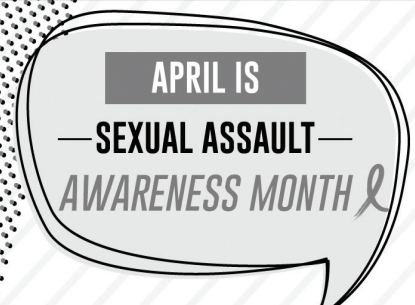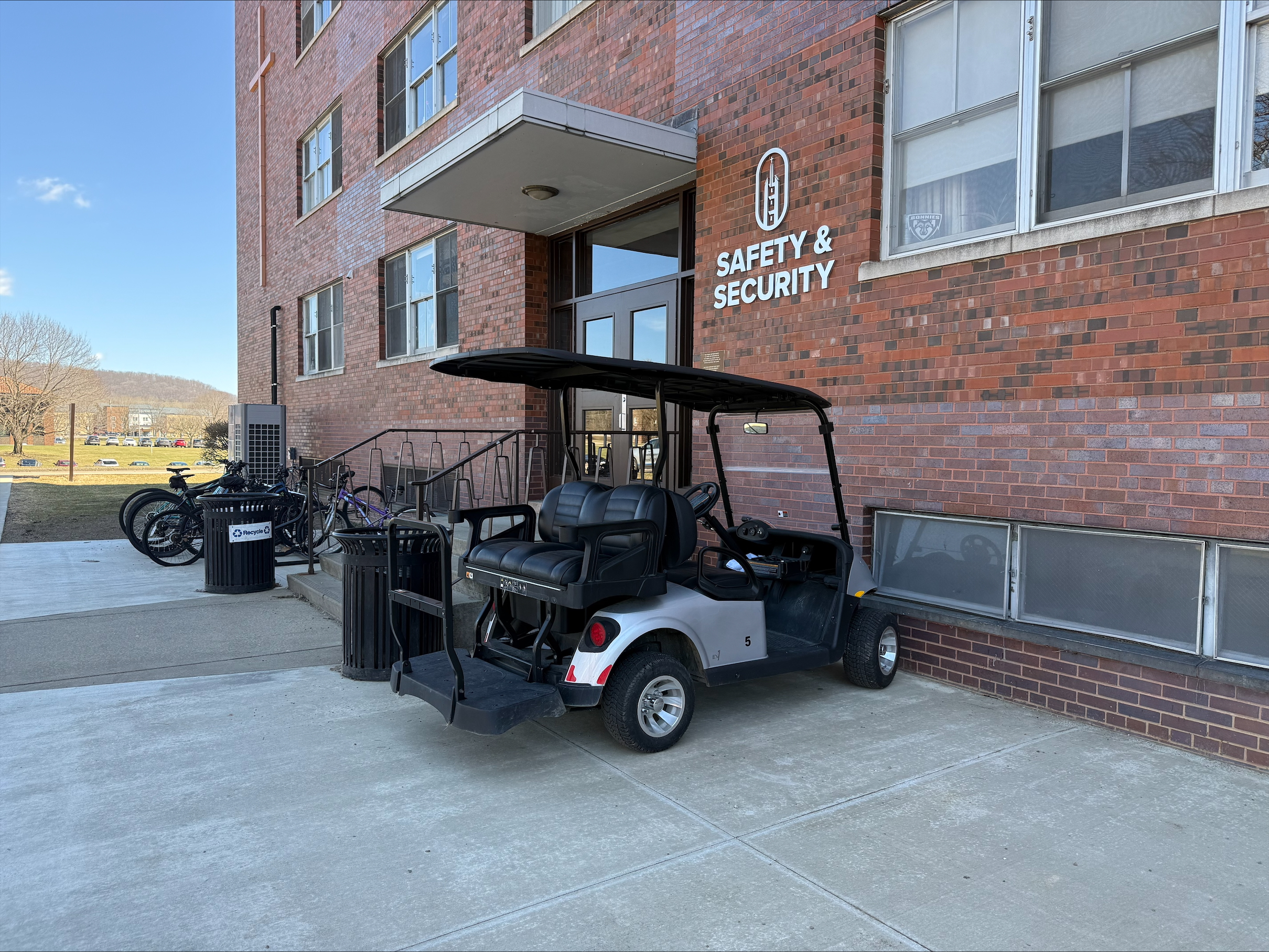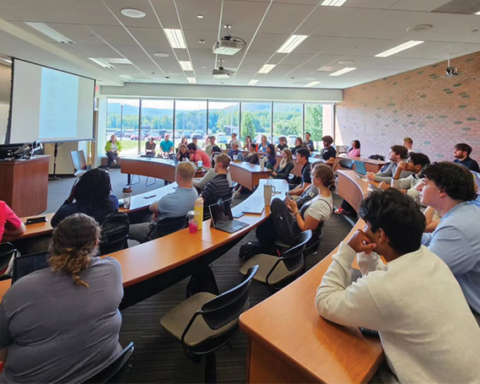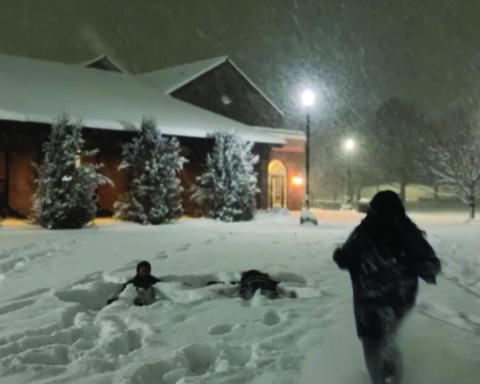When it comes to Title IX laws, the state as well as the university want to make sure students are aware of their rights.
Nichole Gonzalez, executive director of residential life, and Rick Trietley, vice president for student affairs, led a discussion Tuesday evening for club leaders and student athletes regarding Title IX and its stipulations. The pair also discussed how students can help prevent Title IX issues through “bystander intervention.”
Trietley, who also serves as the university’s Title IX coordinator, explained that athletes and student leaders are required by law to attend training annually.
“We feel that if all of you are educated, you can help us educate the rest of the campus,” Trietley said.
According to a PowerPoint presented by Trietley, Title IX laws apply to students who have been affected by sexual violence, including sexual harassment, sexual assault, rape, domestic violence, dating violence and stalking.
“If a report of sexual violence occurs, you may simultaneously have both a criminal investigation occurring that law enforcement would read, as well as a mandatory university investigation,” Trietley said.
The university would have 60 days to investigate a Title IX complaint from the date of the initial report, he said.
He also noted that the university may be responsible for investigating off-campus reports, if two Bonaventure students are involved in an incident.
Any campus community member is welcome to bring forward complaints regarding sexual harassment or violence, he said. Faculty and staff members are mandated reporters of sexual misconduct.
Trietley noted, however, that some campus members, including counselors, health service employees and clergy, acting only as clergy and not as club advisers, may keep reports private should the reporting party wish to avoid a Title IX investigation.
“If you just need to talk to someone, if you just wanted some services and support to help get through these types of incidents, that is available to you. That is your right,” he said.
Reporting parties can be granted “amnesty” in some situations, Gonzalez said.
“We don’t want people to feel uncomfortable giving us information or reporting an incident because they were violating the alcohol policy,” she explained. “Trust me, not that I don’t think the alcohol policy isn’t important, but there are more important things when you’re talking about [Title IX violations].”
The school can also helps students get “interim accommodations” following a report of sexual violence, Gonzalez said.
“We can change a class or help you do that; a residence hall, working schedules, any number of things,” she said. “One of the most common interim accommodations is just no contact orders.”
Gonzalez noted that Title IX cases used to generally favor the accused party. She stressed that this is no longer the case.
“What Title IX requires is a fair and equitable process for all involved parties,” she said.
Gonzalez highlighted the perpetuation of “rape myths” and “the bystander effect” as reasons why sexual violence is still prevalent within society.
“When we perpetuate myths surrounding rape and sexual assault, we are creating an environment where people are not comfortable coming forward. The reason they are called rape myths is because they are not, by-and-large, true,” she said.
“So the myth that most people regret it the next day and that’s why they report, I can promise you is not the case. I can promise you that the majority of women that this has happened to do not come forward because they fear they will not believed,” Gonzalez added.
She said that our ideology toward sexual violence needs to shift away from victim blaming.
“That is what we’ve done for the last 50 to 100 years. We still have a rape culture on college campuses. So we all need to engage in this conversation together,” she said.
She noted that the bystander effect is when people don’t intervene when they witness an incident because there are many other people around as well.
In order to prevent the bystander effect, Gonzalez rather encouraged bystander intervention. She explained bystander intervention as people who aren’t participants in certain situations helping prevent incidents of sexual violence from taking place. This can be done through creating distractions and helping potential victims out of situations.
“What we’re talking about here is how can you make a difference,” Gonzalez asked.
Trietley said Bonaventure students are all responsible to prevent violence.
“Here at St. Bonaventure we value respect,” he said. “We should all view sexual violence as a sign of disrespect.”
mcelfrdh14@bonaventure.edu







